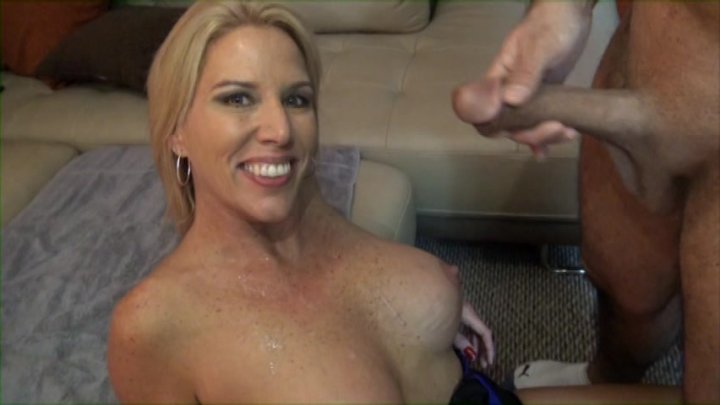AI-Generated Article
This content has been automatically generated using artificial intelligence technology. While we strive for accuracy, please verify important information independently.
Exploring online content and the ways people talk about it can be a really interesting thing to do. We sometimes see discussions pop up in different online communities, and they often touch on content creators and the kinds of things they put out there. These conversations, you know, they give us a little peek into how people discover new things and what they think about what they find. It's kind of like following a thread through a big, interconnected fabric of shared thoughts and comments.
When someone mentions a particular creator or a specific type of content, it often gets others talking, and that's just how these digital spaces work. People share what they've seen, what they like, or maybe even what they're looking for, and it helps everyone sort of get a feel for what's out there. This kind of interaction, it helps shape how content is seen and talked about, and it's pretty fascinating to observe, actually.
This discussion, so, it brings up a creator known as "Jenny" and mentions some content described as "jen and jizzlord moments," along with other related conversations from various online spots. It gives us a chance to look at how people talk about content that's out there, what they appreciate about it, and also how different views come together in these community settings. It’s a good way, really, to get a sense of the varied interactions that happen online.
- African American Art And Culture Complex
- Julio Cesar Pimentel Soriano
- Firewater Bar
- Dj Byrnes
- Cameron Ray
Table of Contents
- Who is Jenny, and What is Her Content About?
- How Do Online Discussions Happen?
- Looking at Different Viewer Interactions
Who is Jenny, and What is Her Content About?
When people talk about content creators online, it's often about what they produce and how it's received. In this case, there's a person named Jenny who comes up in conversations, and she's mentioned in connection with content she puts out. The specific details about her as an individual are not really available in the comments we're looking at, but what we can gather is that she creates things that people seem to be watching and discussing. It's a situation where the content itself speaks more than any personal history, you know, as far as these particular discussions go.
What we know about Jenny comes from what others say about her work. People talk about her content being available on platforms like Patreon, which is a common way for creators to share their work and connect with people who support them. This setup, so, allows creators to share things directly with their audience, and in return, those who enjoy the content can offer some support. It's a pretty common model in the online creative space, actually, and it helps creators keep making what they do.
The discussions suggest that Jenny's content is considered good by those who follow her. There's talk about the quantity and also the quality of what she provides, and people seem to think it offers good value for the cost. This kind of feedback, it really highlights how important it is for creators to consistently put out work that their audience finds worthwhile. It’s what helps them build a following and keep people interested in what’s coming next, you know.
Exploring Jenny's Patreon Presence
The comments mention that Jenny is putting out content on Patreon, and that it's something people seem to appreciate. Patreon is a platform that lets content creators get paid for their work by offering subscriptions or memberships to their fans. It's a way for people to directly support the artists, writers, or performers they enjoy, and in return, they often get access to special or exclusive material. This kind of direct support is a really big part of how many creators make a living today, you know, allowing them to keep creating without relying on traditional avenues.
From what's been shared, the content Jenny puts out is seen as being consistently good. People mention that there's a lot of it, and that the quality is high. They also point out that it's pretty affordable, especially when you think about how much content you get and how well-made it seems to be. This combination of volume, quality, and a fair price point is something that often helps creators attract and keep an audience, and it seems to be working well in this instance, actually.
When a creator gets feedback like this, it shows that they're probably doing a good job of meeting their audience's expectations. It suggests that Jenny is delivering on what her followers are looking for, and that's a key part of building a successful presence on a platform like Patreon. It's not just about making things, but also about making things that people genuinely want to see and are willing to support, you know, which is a pretty important distinction.
| Detail | Information |
|---|---|
| Full Name | Not specified in the provided text. |
| Known As | Jenny |
| Profession/Role | Content Creator (specifically Patreon content) |
| Associated Content | "Great Patreon content," "jen and jizzlord moments" |
| Noteworthy Traits | Consistently putting out content, content is super affordable relative to quantity and quality. |
| Community Mentions | Discussed in u_southernrambler24, cedehsgifs2, porn_news communities. |
What are "Jenny Jizz" Moments?
The phrase "jenny jizz" appears in the discussions, particularly in reference to "jen and jizzlord moments." This seems to refer to specific segments or types of content that Jenny creates, possibly involving another person or character known as "jizzlord." It suggests that these are particular highlights or fan-favorite parts of her work, something that viewers specifically recall and enjoy. When people create things, you know, they often have recurring themes or characters that become popular with their audience, and this seems to be an example of that.
The fact that someone mentions making "probably terrible gifs" of these "jen and jizzlord moments" really tells us that these parts of her content are memorable enough for people to want to capture and share them. Creating gifs is a way for fans to show their appreciation and to spread the word about content they like, often highlighting specific, funny, or striking scenes. It's a very common practice in online fan communities, actually, and it helps build a shared experience around the content.
Even though the person describes their gifs as "terrible," the act of making them still points to a strong engagement with the material. It shows that these particular moments, these "jenny jizz" instances, are significant enough to inspire creative output from viewers. It also hints at the kind of content that resonates with her audience, perhaps something that is entertaining or has a distinct personality. This kind of fan interaction, you know, is pretty valuable for a content creator.
How Do Online Discussions Happen?
Online discussions often start from a single comment or a piece of shared information, and they can then branch out in all sorts of directions. It's a bit like a conversation that just keeps going, with new people joining in and adding their thoughts at different points. Sometimes, you see, a casual mention of something can lead people down what one person described as a "rabbit hole," where they keep looking for more information or related content. This is a pretty common way for people to explore topics they find interesting, actually, just following one link or comment after another.
The way these conversations unfold can be quite organic. Someone brings up a topic, and then others chime in, sharing their own experiences or what they've found. This kind of back-and-forth helps build a collective understanding or a shared pool of information about a subject. It's how communities on the internet often function, with people contributing bits and pieces to a larger discussion, you know, making it a more comprehensive picture over time.
Even when a particular thread or comment seems to disappear, the impact of the discussion can still be felt. People remember what was said, and it can lead them to seek out new communities or different sources of information. This persistence in seeking out content or discussions, so, really shows how engaged people can become with certain topics or creators. It’s a testament to the lasting impression some online interactions can leave, even if the original source isn't immediately found.
Following the Digital "Rabbit Hole" on Jenny Jizz
The idea of falling into a "rabbit hole" is something many people experience when they're exploring things online. Someone mentioned Jenny, and it led them down one of these paths, looking for more. This suggests that Jenny's content, or perhaps the discussions about it, are compelling enough to make people want to dig deeper. It's a pretty strong indicator that her work has a way of capturing people's attention, you know, drawing them into a larger web of related information and fan interactions.
When people go down these digital rabbit holes, they're often trying to find the original source of a discussion or more examples of content they've heard about. In this case, someone was looking for the original thread that first brought them to a discussion about Jenny. This shows a desire to trace back the origins of information, which is a very natural human tendency, actually, to understand how something started and where it came from.
Even if the original thread can't be found, the fact that people remember it and continue to look for it points to the impact that certain online conversations can have. It highlights how a single mention of "jenny jizz" or her content can spark a wider interest, leading people to explore different parts of the internet in search of more. This kind of persistent curiosity, you know, is a big part of how online communities grow and how information spreads from one person to another.
What Are Some Related Community Conversations?
Beyond the direct discussions about Jenny's content, the provided comments also touch on other community conversations that happen in similar online spaces. For example, there's a mention of a community dedicated to "juggalos," which is a group of fans associated with certain music and culture. This community, it seems, is a place for people to talk about new albums, news from the "underground" scene, and just generally share information. It’s a pretty specific interest group, you know, where people with shared tastes come together.
Within this broader context, there's also a discussion about an individual who is described in very negative terms, as a "shit stain in the underground" who allegedly "screwed over so many people for money" and "like little girls." This part of the conversation is distinct from the mentions of Jenny, and it appears to be about a different person entirely, highlighting that online communities can host a wide array of discussions, some positive and some very critical. It's a reminder, actually, that these spaces reflect many different viewpoints and experiences.
The presence of these varied discussions, some about content creators and others about controversial figures, shows the diverse nature of online communities. They're places where people can share their passions, express their opinions, and also bring up concerns or criticisms about individuals or events. It’s a good example, really, of how digital spaces can serve as forums for many different kinds of conversations, reflecting the varied interests and perspectives of their members.
Looking at Different Viewer Interactions
When people interact with online content, they do so in many different ways, and their comments can show a range of attitudes and expectations. For instance, some comments express strong appreciation for a creator's work, like those praising Jenny's consistent output and affordable content. This kind of feedback, you know, is usually very encouraging for creators, as it confirms that their efforts are valued by their audience. It's a direct way for people to show their support and enjoyment.
On the other hand, some interactions focus on very specific interests, like the comments about foot fetishists. One person states that some people with this interest still have "dignity, and respect for women," while another expresses a desire to "jizz near her feet" to avoid her having to clean them. These comments, so, show a range of perspectives within a particular niche interest, from those who emphasize respect to those who express more explicit desires. It’s a good illustration, really, of the varied and sometimes contrasting viewpoints that can exist even within a single community or interest group.
The mention of a "girlfriend" at the end of one comment, though incomplete, suggests that people bring their personal lives and relationships into these online discussions, even implicitly. It hints at the way online interactions can sometimes connect with or reflect real-world experiences and relationships. This blending of online and offline elements is a very common aspect of how people use digital spaces, actually, where their personal lives often intersect with their online activities.
Considering Respect in Online Spaces
The discussions about different viewer interactions also bring up the idea of respect in online spaces. One comment, for example, makes a point about "some of us foot fetishists have some fucking dignity, and respect for women." This statement highlights that even within specific interest groups, there can be a strong emphasis on maintaining respectful attitudes towards others, especially the subjects of their interest. It shows that people often have their own moral lines and expectations for behavior, you know, even in less conventional online discussions.
This kind of comment suggests that there's a recognition that not all interactions are seen as equally acceptable, and that some people feel it's important to differentiate themselves by emphasizing respectful conduct. It's a way of setting boundaries and expressing what they believe is appropriate behavior, even in seemingly informal online settings. This focus on dignity and respect, so, is a reminder that people carry their values with them into digital conversations, and they often express them quite openly, actually.
The contrast between this emphasis on respect and other, more explicit comments in the same discussion shows the wide spectrum of expressions that can be found online. It illustrates how communities can be made up of people with very different ideas about what's acceptable to say or how to interact. This diversity of views, you know, is a natural part of any large group of people coming together, whether online or offline, and it often leads to interesting, if sometimes challenging, conversations.
Summary of Community Insights
Looking at these community comments gives us a sense of how online content, like that from "Jenny," is talked about and shared. It shows how people find new things, discuss their favorites, and sometimes even create their own related content. The discussions also point to the various kinds of conversations that happen in online groups, from appreciating creators to debating respect and even bringing up unrelated, critical views of other figures. It’s a peek, really, into the lively and varied ways people connect and share thoughts on the internet.
🖼️ Related Images



Quick AI Summary
This AI-generated article covers Jenny Jizz - Content Creation And Community Insights with comprehensive insights and detailed analysis. The content is designed to provide valuable information while maintaining readability and engagement.
Billy Beahan
✍️ Article Author
👨💻 Billy Beahan is a passionate writer and content creator who specializes in creating engaging and informative articles. With expertise in various topics, they bring valuable insights and practical knowledge to every piece of content.
📬 Follow Billy Beahan
Stay updated with the latest articles and insights